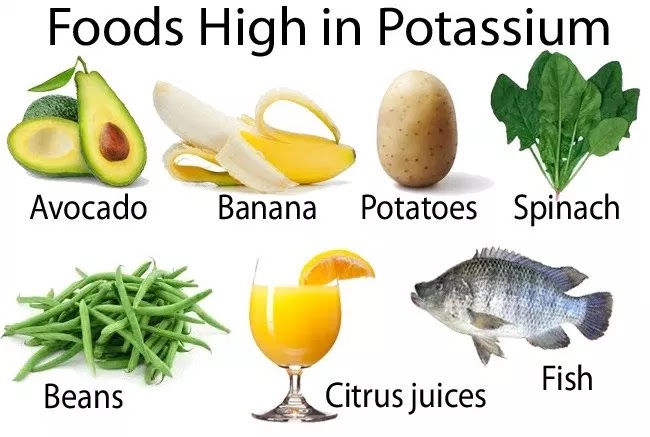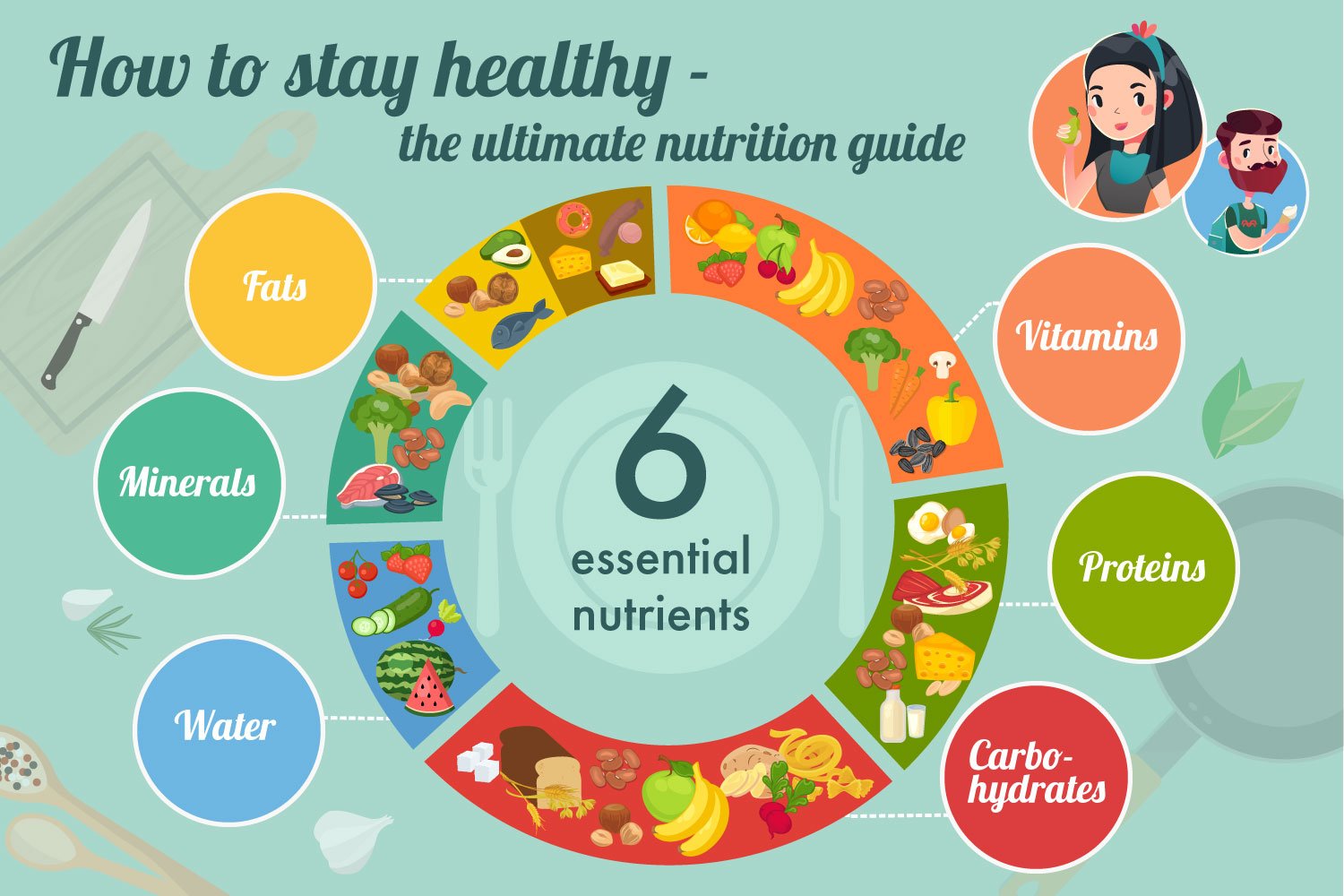Identifying Foods Packed with Potassium
Potassium is an essential mineral that plays a vital role in maintaining overall health and well-being. It is crucial for various body functions, including maintaining healthy blood pressure, supporting nerve and muscle function, and promoting proper fluid balance. Given its significance, it is important to be aware of the foods that have a lot of potassium, enabling you to make informed dietary choices.
Fruits Bursting with Potassium
Fruits are an excellent source of essential nutrients, including potassium. Including a variety of potassium-rich fruits in your diet can help you meet your daily nutritional needs while enjoying delicious and nutritious food options. Some potassium-rich fruits to consider are:
- Bananas: A medium-sized banana provides approximately 422 milligrams of potassium, making it a convenient and portable snack option.
- Oranges: One medium orange offers around 237 milligrams of potassium, along with a healthy dose of vitamin C.
- Avocados: A serving of avocado (about 1/3 of a medium avocado) contains approximately 345 milligrams of potassium and is rich in healthy fats.
- Dried fruits: Prunes, raisins, and apricots are high in potassium, with 637, 598, and 544 milligrams per cup, respectively. However, be mindful of portion sizes, as dried fruits can be high in calories and sugar.
Incorporating these fruits into your daily meals and snacks can help you increase your potassium intake and enjoy the numerous health benefits associated with this essential mineral.
Vegetables Loaded with Potassium
Vegetables are another important category of potassium-rich foods that can contribute significantly to your daily nutritional intake. Here are some potassium-rich vegetables to include in your diet:
- Leafy greens: Spinach, kale, and collard greens are excellent sources of potassium, with 420, 382, and 319 milligrams per 1/2 cup cooked, respectively. They are also rich in vitamins A, C, and K, as well as iron and calcium.
- Potatoes: A medium-sized potato (with skin) provides approximately 926 milligrams of potassium, along with fiber, vitamin C, and vitamin B6.
- Squash: Winter squash, such as butternut and acorn squash, are high in potassium, with 588 and 448 milligrams per cup cooked, respectively. They are also rich in vitamin A and fiber.
- Sweet potatoes: A medium-sized sweet potato (baked in skin) contains 542 milligrams of potassium, along with vitamin A and fiber.
Adding these vegetables to your meals can help you increase your potassium intake and enjoy the numerous health benefits associated with this essential mineral.
Protein Sources Packed with Potassium
Protein-rich foods are an essential part of a balanced diet, and many of these foods also contain significant amounts of potassium. Here are some potassium-rich protein sources to consider:
- Fish: Salmon, halibut, and flounder are excellent sources of potassium, with 496, 490, and 454 milligrams per 3-ounce serving, respectively. They are also rich in omega-3 fatty acids, which support heart health.
- Beans: White beans, kidney beans, and lentils are high in potassium, with 595, 576, and 535 milligrams per 1/2 cup cooked, respectively. They are also rich in fiber and protein, making them a filling and nutritious food option.
- Dairy products: Milk, yogurt, and cheese are good sources of potassium, with 366, 579, and 204 milligrams per 8-ounce serving, respectively. Dairy products are also rich in calcium, vitamin D, and protein.
- Poultry: Chicken and turkey are moderate sources of potassium, with 292 and 334 milligrams per 3-ounce serving, respectively. They are also excellent sources of lean protein, which supports muscle growth and repair.
Incorporating these protein sources into your meals can help you increase your potassium intake and ensure that you are meeting your nutritional needs.
How to Incorporate Potassium-Rich Foods into Your Diet
Incorporating potassium-rich foods into your diet can be both enjoyable and easy. Here are some practical tips and meal ideas to help you get started:
- Start your day with a smoothie: Blend together potassium-rich fruits, such as bananas, oranges, and berries, with some leafy greens and a source of protein, like Greek yogurt or protein powder. This will provide you with a nutrient-dense and delicious breakfast option.
- Add vegetables to your meals: Incorporate a variety of potassium-rich vegetables, such as spinach, potatoes, and squash, into your meals. This can be as simple as adding spinach to your omelette or using mashed potatoes as a side dish.
- Choose potassium-rich snacks: Opt for snacks that are high in potassium, such as dried fruits, nuts, and seeds. These can be enjoyed on their own or paired with other foods, such as yogurt or hummus.
- Experiment with new recipes: Try incorporating potassium-rich ingredients into your favorite recipes or experimenting with new recipes that feature these ingredients. For example, you can try making a lentil soup or a salmon stir-fry.
- Consult a registered dietitian: If you need personalized advice on how to incorporate potassium-rich foods into your diet, consider consulting a registered dietitian. They can provide you with a customized eating plan that meets your individual nutritional needs and preferences.
By following these tips and incorporating potassium-rich foods into your diet, you can ensure that you are meeting your nutritional needs and supporting your overall health.
Potassium and Your Health: Key Takeaways
Potassium is an essential mineral that plays a critical role in maintaining good health. Consuming potassium-rich foods can provide numerous health benefits, including:
- Maintaining healthy blood pressure: Potassium helps to balance the effects of sodium in the body, which can help to regulate blood pressure and reduce the risk of hypertension.
- Supporting nerve and muscle function: Potassium is necessary for the proper functioning of nerves and muscles, including the heart. It helps to transmit electrical signals throughout the body, ensuring that muscles contract and relax as needed.
- Promoting overall health: Potassium plays a role in many other body functions, including bone health, kidney function, and digestion. Ensuring that you are getting enough potassium in your diet can help to support overall health and well-being.
To reap these benefits, it is important to consume a variety of potassium-rich foods as part of a balanced and healthy diet. By following the tips and advice provided in this guide, you can make informed dietary choices and ensure that you are getting enough potassium to support your health and well-being.
Additional Nutrients and Balanced Eating
While it is important to consume potassium-rich foods as part of a healthy diet, it is equally important to consider other essential nutrients. A balanced and varied diet that includes a wide range of fruits, vegetables, whole grains, lean proteins, and healthy fats can help to ensure that you are meeting all of your nutritional needs. Here are some tips for maintaining a balanced diet:
- Eat a variety of foods: Aim to include a variety of different foods in your diet, rather than relying on a limited number of foods. This will help to ensure that you are getting a wide range of nutrients, including potassium and other essential minerals and vitamins.
- Choose whole foods: Opt for whole, unprocessed foods whenever possible. These foods are often higher in nutrients and fiber than processed foods, and they can help to support overall health and well-being.
- Consult a registered dietitian: If you need personalized advice on how to maintain a balanced diet, consider consulting a registered dietitian. They can provide you with a customized eating plan that meets your individual nutritional needs and preferences.
By following these tips and incorporating a variety of potassium-rich foods into your diet, you can ensure that you are getting the nutrients you need to support your health and well-being.
Staying Informed: Potassium and Your Diet
Staying informed about your nutritional needs and the role of potassium in your diet is essential for maintaining good health. Here are some resources for further reading and learning:
- Healthline: Healthline is a reputable health and wellness website that provides information on a wide range of topics, including nutrition and potassium. Their articles are written by medical professionals and are evidence-based, ensuring that you get accurate and reliable information.
- The National Institutes of Health: The National Institutes of Health (NIH) is a government agency that provides information on a wide range of health topics, including nutrition and potassium. Their website includes detailed information on the recommended daily intake of potassium, as well as the health benefits of consuming potassium-rich foods.
- The Academy of Nutrition and Dietetics: The Academy of Nutrition and Dietetics is a professional organization for registered dietitians and nutritionists. Their website includes a wide range of resources on nutrition and healthy eating, including information on potassium-rich foods and their health benefits.
By staying informed and making mindful food choices, you can ensure that you are getting the nutrients you need to support your health and well-being. Remember, a balanced and varied diet that includes a wide range of potassium-rich foods can help to support healthy blood pressure, nerve and muscle function, and overall health.









